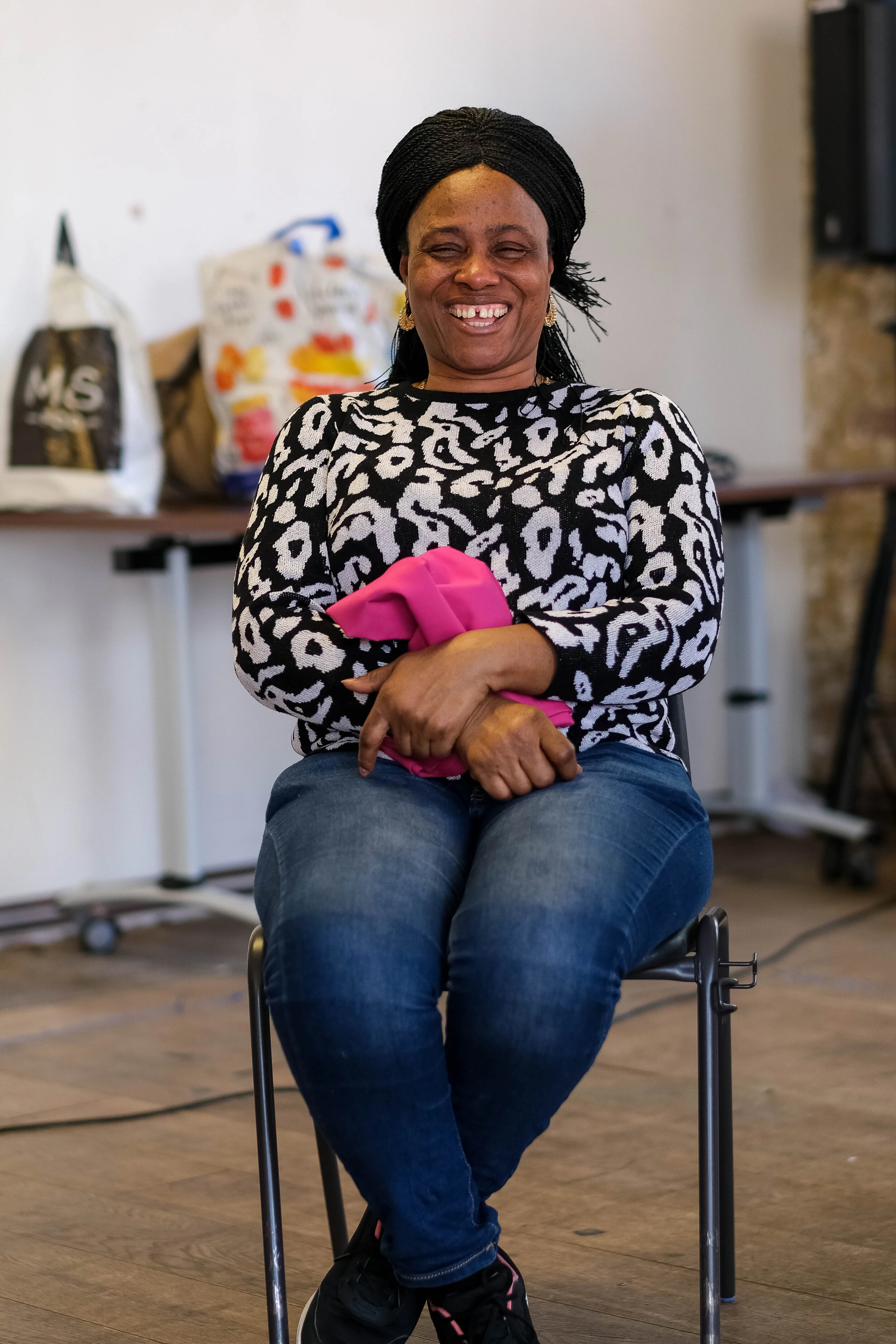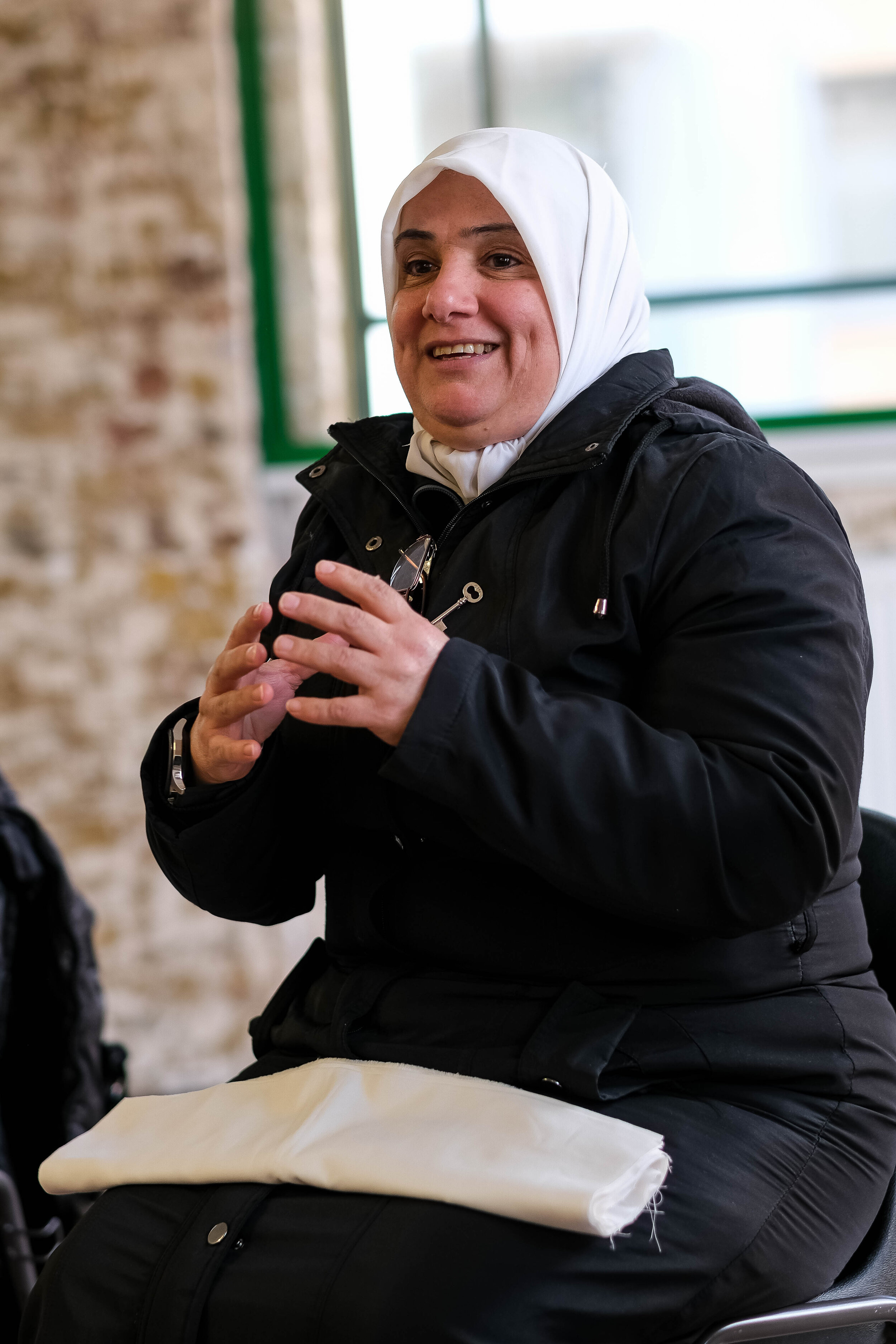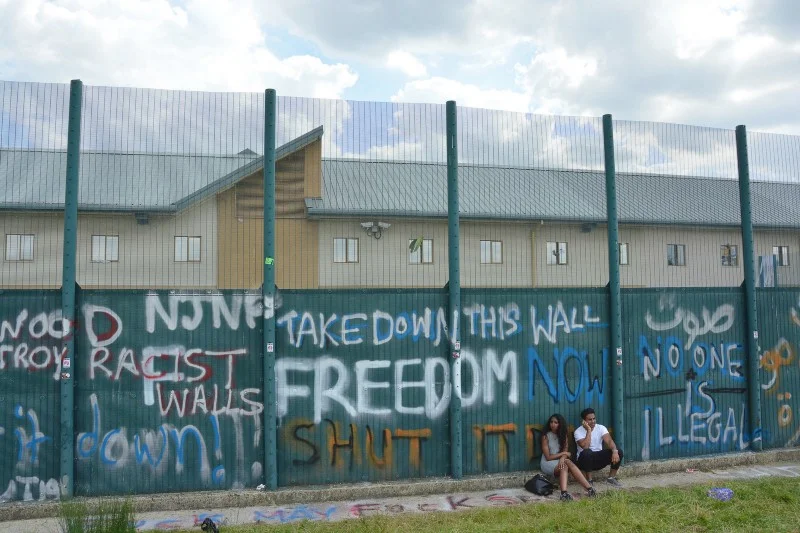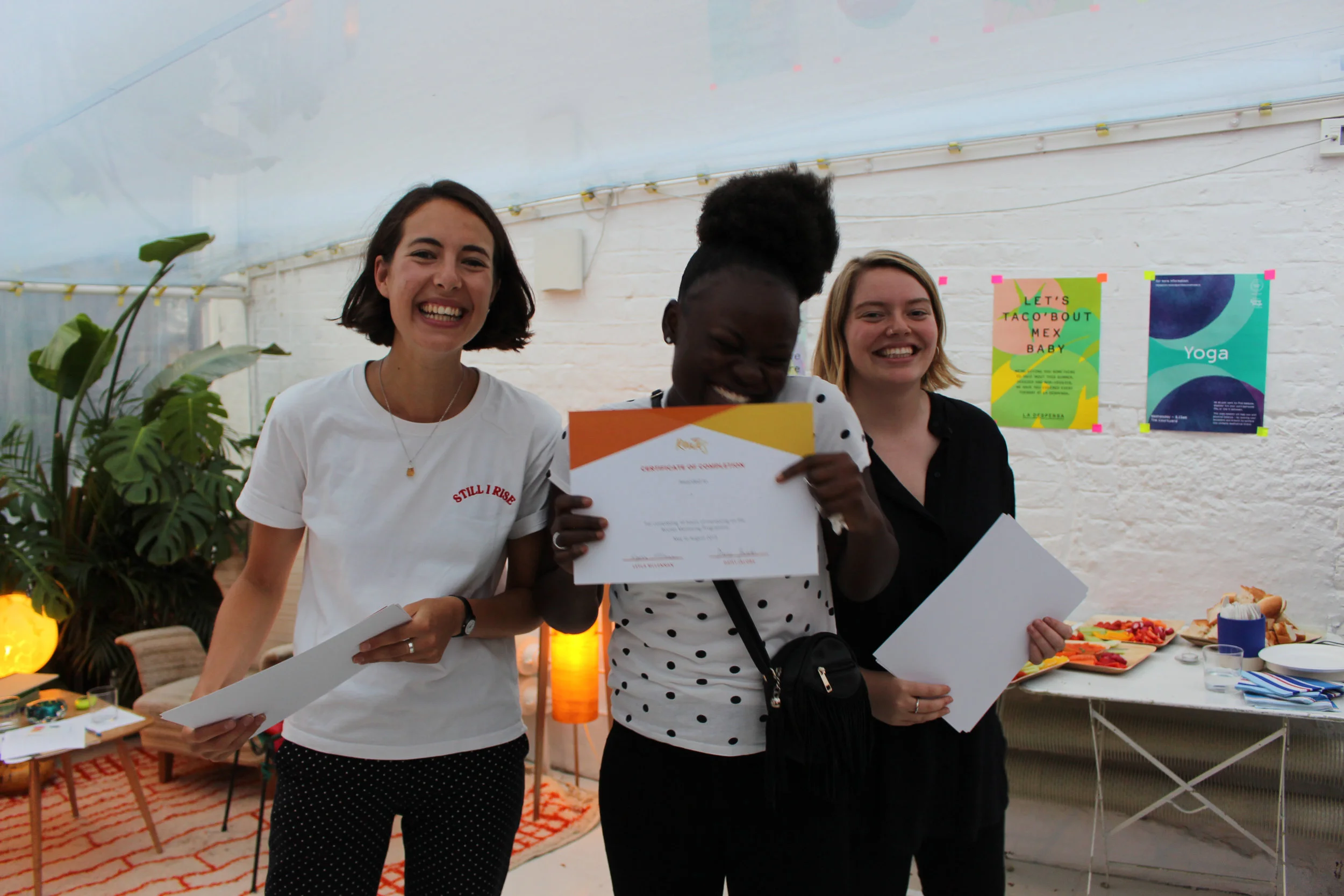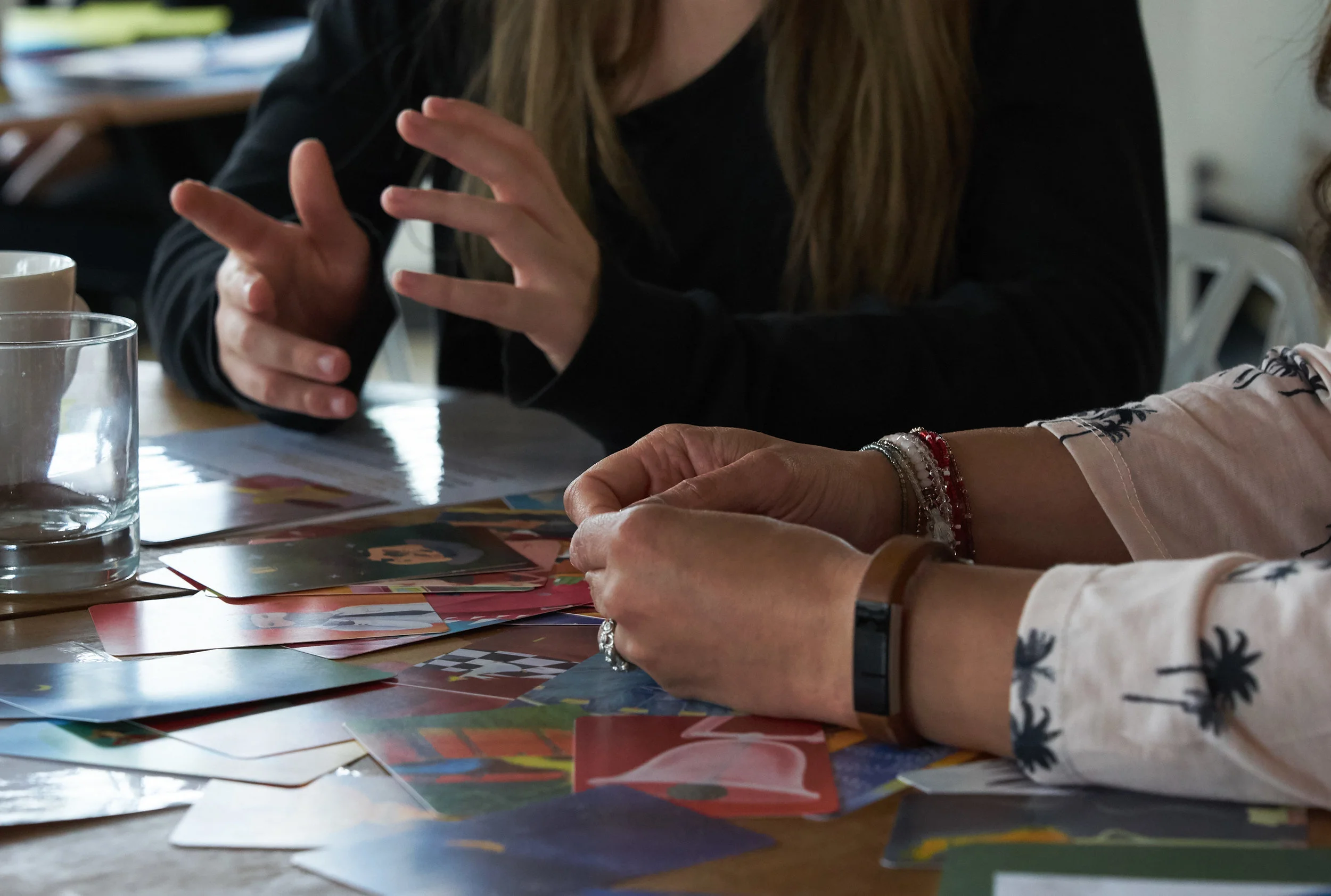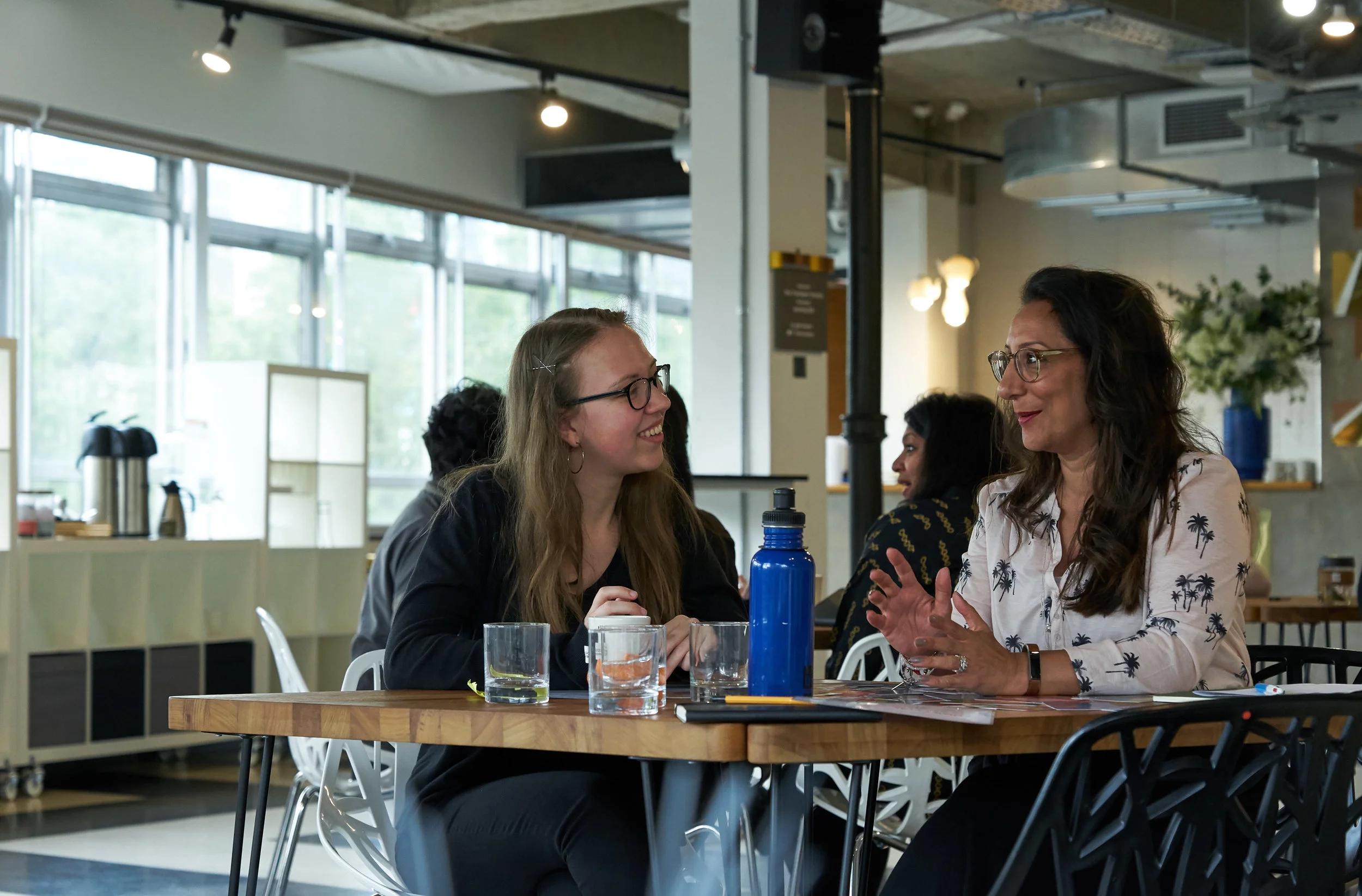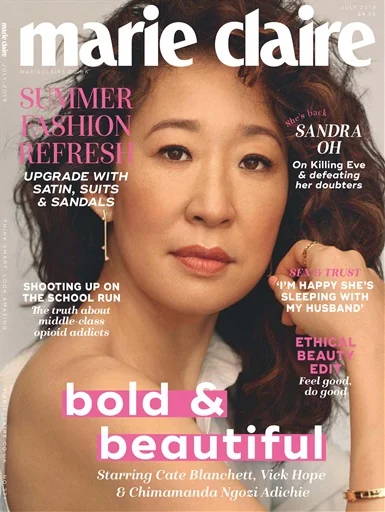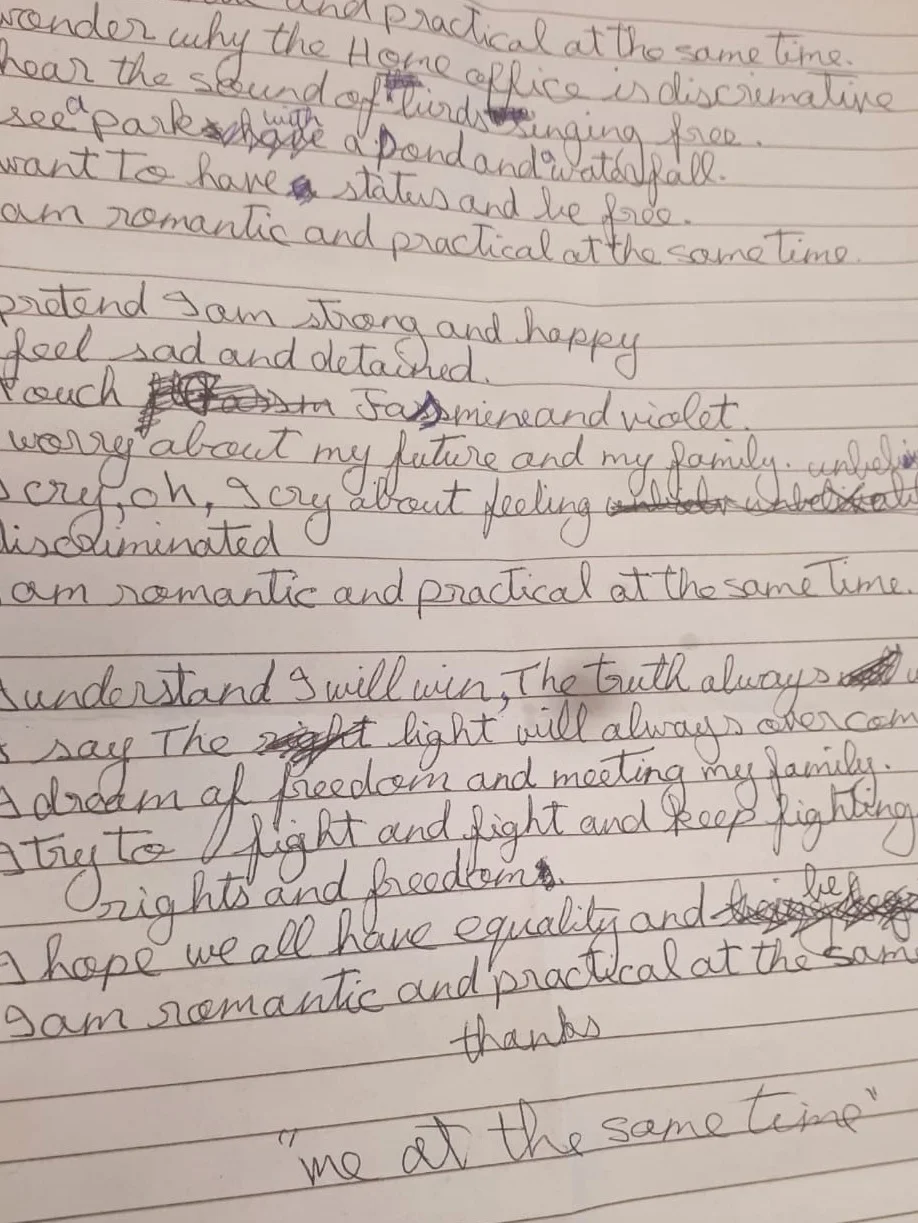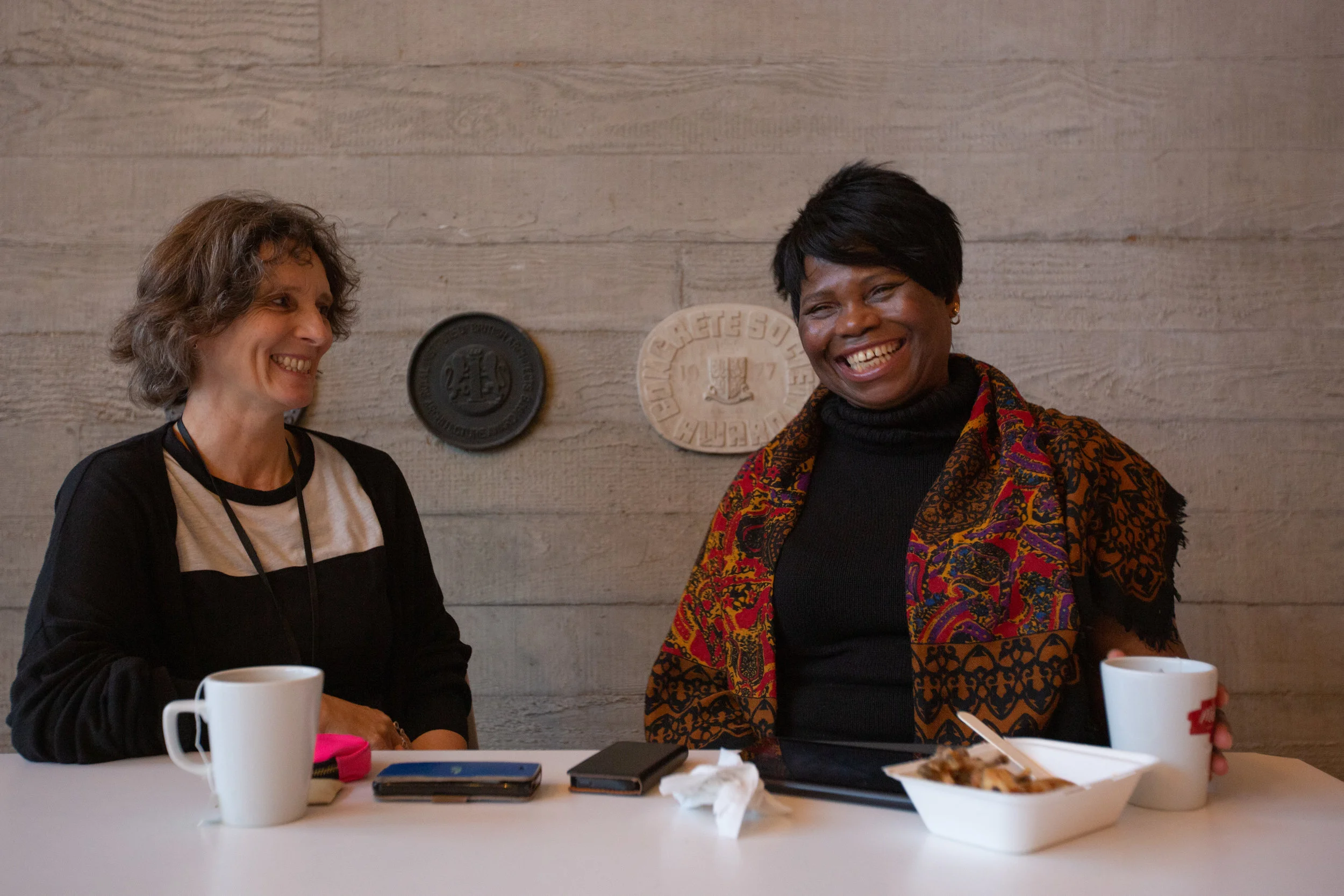Routes blog
2019 with Routes
December is always a nostalgic time of year for Routes...
In 2017 we were launching Routes at Year Here’s Crowdbacker event and, a year later, in December 2018 we were celebrating the end of our first mentoring and theatre programmes at the Young Vic, accompanied by the delicious smells of fresh cooking and the occasional burst of song. Now, in December 2019 we are celebrating another extraordinary year at Routes: our community has grown and we’ve nurtured even more joyful, welcoming and compassionate connections across London. Here’s what we’ve been up to...
December is always a nostalgic time of year for Routes...
In 2017 we were launching Routes at Year Here’s Crowdbacker event and, a year later, in December 2018 we were celebrating the end of our first mentoring and theatre programmes at the Young Vic, accompanied by the delicious smells of fresh cooking and the occasional burst of song. Now, in December 2019 we are celebrating another extraordinary year at Routes: our community has grown and we’ve nurtured even more joyful, welcoming and compassionate connections across London. Here’s what we’ve been up to...
In February 2019…
we started running our drop in workshops at the Young Vic’s Platform Southwark, welcoming up to 25 women each week to play, create, laugh and learn together. Supported by amazing volunteers and nourished by the Bread Station, we built a creative community that grew week on week.
In March and April 2019...
we were invited by the very generous National Theatre and Nimax Theatres to see the awe-inspiring Small Island (NT) and Emilia (Nimax). Both shows were beautifully moving and we had truly amazing evenings at both!
“I liked the broad appeal of the play, written by women for women at a time when they had little voice. So impressed by the character of Emilia on stage at all times during the performance, it well deserved the standing ovation when the play finished.” (Karlene)
In May 2019...
we launched our second mentoring programme, pairing 22 professional women with 22 women from refugee backgrounds for four months of mentoring. Together, the pairs worked towards their mentees’ goals, ranging from CV writing and attending interviews, to general confidence building, digital skills, language development and much more. Read Luba’s account of her mentoring journey.
In June 2019...
we were generously enabled by donations from the wider community of Routes supporters to launch a series of Refugee Week activities, bringing together women seeking safety across London to join us in a movement workshop, a self defence workshop and a theatre trip to see Phosphoros Theatre’s brilliant Pizza Shop Heroes.
In August 2019...
it was time to celebrate the end of our second cohort’s mentoring journeys. We came together at Second Home Holland Park to reflect, look forwards and catch up over drinks and snacks with all mentors and mentees. It was very special to hear how many new compassionate and caring relationships had been built since we all first met in summer. Read Sophie’s account of her mentoring journey.
“We all get absorbed in our day to day lives… through programs like Routes you are able to step outside of your comfort zone and take on the challenge of making a difference.” (Nahida Rahman, mentor)
In September 2019...
we started a 10 week programme at the Arcola Theatre, facilitated by the brilliantly passionate Lateisha Davine Lovelace Hanson alongside the wonderful writer Eva Edo, supported by Alessandra Davison. The programme brought together 16 women from refugee backgrounds to explore, create, share, listen, move, dream, sing and laugh together every Monday morning, working towards a beautiful sharing performance in December. See more photos on our Instagram.
In October 2019...
we challenged theatres across London and beyond to reflect on how theatres can be spaces of welcome for people seeking safety in the UK. In a conference held at the National Theatre, we brought together theatres, NGOs, practitioners, grassroots organisations and individuals with lived experience of the asylum system to discuss how more theatres can and should engage in the work of creating welcome. We heard from the British Red Cross, Phosphoros Theatre, Compass Collective, Young Vic, Leeds Playhouse, Counterpoints Arts, Good Chance, as well as some of the Routes community. The room was left buzzing and we’ve loved watching how different organisations have actioned their learnings from the day. Read more about the event on Twitter.
Also in October 2019…
we launched our third mentoring programme! We’ve brought together 16 pairs this time around, training and supporting 16 professional women to support 16 brilliant mentees to achieve their personal and professional goals. We’ve partnered with two amazing organisations on this programme, Happy Baby Community and Migrant Help. The progress already being made by mentoring pairs is astounding and we can’t wait to celebrate their journeys with them in February next year!
In November 2019...
we were invited by the wonderful Phyllida Lloyd to watch Tina: the Musical at London’s Aldwych Theatre. We sang our hearts out, we laughed and we cried and... we were lucky enough to share a drink with Phyllida and cast member Ed after the show, which very quickly turned into a group sing-along! We discussed why access to theatre and the Arts is so important for people who are seeking safety in the UK, especially those seeking asylum who do not have the right to work, receiving only £5.39 a day from the government, which barely even covers travel costs in London.
And finally, in December 2019...
we celebrated the end of the year with ‘I Am Alive - the Power of Women’ at the Arcola Theatre, after 10 weeks together. 70 audience members gathered to watch the phenomenal cast of women share their stories, poems, songs, paintings and more. Watch this space for photos coming soon!
If you’ve made it this far, thank you for reading! And if you are one of the many people who has joined us, supported us, followed us on social media, donated to us or simply taken interest in the work we do… an extra big thank you to you.
This month, we learnt that we are set to face at least another five years of hostility, austerity, injustice and discrimination in the UK. It is in these times that we need communities of hope, joy, patience and compassion more than ever. We need people - alone and together - to step up in the place of a government that persistently overlooks and mistreats people of colour, refugees and asylum seekers, women, children, people on low income, parents and carers, and other minority communities across the UK. In 2020, we are calling on you to connect with the neighbours in your communities, to reach out and spend time with people who have different life experiences to you, and (if you are able to) to support the small organisations plugging the massive holes in whatever ways you can.
Let’s come together to ensure that the next five years (and beyond) are defined by community, solidarity and compassion.
Happy New Year from Routes
'End detention now' - A poem about immigration detention by E.E.
A poem written by E.E., a participant in our theatre workshops, about immigration detention.
Detention is. Detention is.
Do you know the prison?
Do you ever locked up in a cell?
There is no different between being criminal or innocent.
Detention is. Detention is.
Being vulnerable is a big crime.
Trying to follow law. The law escape from you.
Try to find solicitor. Solicitors are not free.
Detention is. Detention is.
Freedom is so far.
Deportation is so near.
Fear. Cry. Suicidal thought.
What have I done?
Why am I here?
Detention is. Detention is.
Expired sanitary product.
Forced untasty food.
Dark, hopeless, end of the tunnel.
Work for one pound per hour.
Detention is. Detention is.
There are no human rights.
It is abuse and humiliating.
End the abuse of human right.
End the disaster called detention.
End detention. End detention.
— ‘End detention now’ by E.E.
About immigration detention in the UK
Immigration detention is the practice of holding people who are subject to immigration control in custody, while they wait for permission to enter or before they are deported or removed from the country. It is an administrative process, not a criminal procedure. This means that migrants and undocumented people are detained at the decision of an immigration official, not a court or a judge.
Home Office policy says that detention must be used sparingly and for the shortest possible period. But in reality, many thousands are held each year, and some for very lengthy periods, causing serious mental distress. Unlike most other European countries, there is no time limit on immigration detention in the UK.
The UK is one of the largest users of detention in Europe. People are detained in detention centres known as 'Immigration Removal Centres' (IRCs), Short-Term Holding Facilities (STHFs) and prisons.
Around 24,000 people are held under Immigration Act powers every year, for a range of reasons. Some are asylums seekers who have had their claim refused. Others are asylum seekers who have a claim in process, and are being held while that decision is made (under what is known as the Detained Fast Track). Whatever the circumstances, being held in prison-like conditions without a time limit causes anxiety and distress. Many detainees already have traumatic backgrounds, and the psychological impact of being held is absolutely damaging.
Sophie's mentoring experience
My mentee and I hit it off instantly. Sara greeted me with the most amazing smile and we went straight in for a hug. Our first session went really well and it was surprising how at ease she felt – this also helped me to relax…
Sophie is a Projects Coordinator at online mentoring organisation Brightside
I signed up to be a Routes mentor because I was looking for an opportunity to make an impact and to enhance my leadership skills. I have experience of campaigning for refugee and asylum seeker rights from university and have a keen interest in the power of women supporting women so naturally Routes was the perfect fit for me!
I would recommend being a Routes mentor to a friend or anyone seeking an opportunity to develop their mentoring skills. I work for a small organisation therefore this opportunity has provided me with a chance to develop practical skills for future line management outside of the formal work structure developing my listening, communication and time management skills and patience.
My mentee and I hit it off instantly. Sara (not her real name) greeted me with the most amazing smile and we went straight in for a hug. Our first session went really well and it was surprising how at ease she felt – this also helped me to relax! Sara and I are very open and honest with each other which I think is key to building a mentoring relationship, if she is ever having a tough day she will just let me know. Equally if she is in the mood to power on with a full English lesson she will say so. I’ve both enjoyed and found it challenging to vary our weekly sessions to get the best out of our time together.
Sara’s goal is to work as a nurse again. This will be a long journey requiring her to gain the right to work and restudying for her qualifications.* Despite this rather uphill struggle she is good at breaking down her goal into smaller steps. When we first met she told me that she wanted to work on her spoken English so this is where our focus has been for the past 10 weeks.
I remember during our first session that we banned the phrase ‘I can’t speak English’ as Sara can speak English. We have focused on strengthening her confidence in her spoken English ability. Some weeks we just talk and discuss funny English phrases like ‘bits and bobs’ or work through English exercises online or complete Sara’s English lesson sheets. I’m amazed how far Sara has come in a few short weeks – I can now barely get a word in during our hour long sessions!
She accepted my challenge of ordering our coffees in week 8 with ease – a task that would have terrified her in week 1 and is hoping to start ESOL English classes in September to work towards her qualifications. ESOL classes are accredited courses that provide recognised qualifications that are crucial for getting jobs or moving onto other courses. It is great to know that Sara is supported by her English teachers and is ready to start her next step in her English lessons after our time together on the programme comes to an end.
A massive highlight was when Sara told me how a stranger on a bus had complemented her English ability at random. Hearing praise from a stranger really helped Sara to see how her English is improving and to believe that the positive feedback she receives from both me and her English teachers is true.
It has been really enjoyable to use my experience of mentoring from my workplace and previous mentoring roles in a new way. I’ve always worked with young people so it’s been great to gain experience of mentoring someone older than me and not in formal education. My experience as a Routes mentor has demonstrated how mentoring can support asylum seekers in Britain and how working with someone to achieve what may appear a small aim to outsiders is actually the start of a mentee’s journey to a bigger goal.
Applications for our autumn 2019 programme close on Friday 6th September. Apply now!
*Asylum seekers in the UK do not currently have the right to work. Find out more about why and the effects of this here.
Lessons learnt: Luba's mentoring journey
Sitting in Clapham Junction’s Cafe Nero on a spring Friday morning, I felt a little excited and slightly nervous in anticipation of meeting Betty for the first time. As a first-generation immigrant myself, who had received support from so many on my integration journey, I had always wanted to work with refugees to give something back.
Luba’s journey
Luba Kassova is Director and Co-Founder of AKAS consultancy and a mentor on our Summer 2019 programme.
In this blog post, she reflects on her mentoring experience with her mentee, Betty, and the lessons she learnt along the way.
Sitting in Clapham Junction’s Cafe Nero on a spring Friday morning, I felt a little excited and slightly nervous in anticipation of meeting Betty for the first time. As a first-generation immigrant myself, who had received support from so many on my integration journey, I had always wanted to work with refugees to give something back. So this meeting was a dream coming true. My nervousness stemmed from the uncertainties I was facing: would Betty and I get along? And, more importantly, could I make a positive difference to her life in 10 sessions?
It transpired that my instructions about where to meet had been somewhat ambiguous, leading Betty to struggle to find the cafe. Betty, for her part, had not allowed enough time for her journey and was running late. Consequently, our first meeting started 45 minutes late. Despite the rather stressful, sub-optimal start, we connected straight away. Within minutes of meeting, I was engrossed in Betty’s story and humbled by what she had gone through in the last 20 years. (Lesson #1: Don’t worry if the first session doesn’t go quite as you had imagined). As the sessions progressed, I became deeply touched by Betty’s warmth and her passion for bringing people together through her cooking.
Despite our very different backgrounds, circumstances and cultures, I found that Betty and I had a lot in common. We had both been in London for almost two decades; we both loved bringing people together; we both enjoyed food; and we had both lost our mums early in life. I was able to relate to Betty in a way I had not expected to so soon (Lesson #2: Similarities will be there if you look for them.)
Betty’s drive to launch her own business was invigorating. It chimed with my own drive over the last 7 years for running my business. Betty and I started planning events which would showcase her cooking and provide her with feedback on her menu and intended pricing. Throughout our work together I often remembered an invaluable piece of advice we received from the Routes team - celebrate the small victories, not just the big ones (Lesson #3: Take Routes’ advice!). This advice helped me to notice and celebrate all the milestone moments Betty and I reached together, however ‘small’. For example: our shared emotion when writing the invitation for an event; Betty completing her tasting menu; me locating a laptop for her to enable her greater independence; Betty providing the last prices for some ingredients to finalise the budget; the two of us simply sharing a moment of empathy.
At the start of my mentoring journey my sole focus was on how to help Betty, searching constantly for different ways I could enhance her life in the limited time we had together each week. What I hadn’t anticipated, but realise now, is how much Betty enhanced my life. Her honesty, the unique challenges she continues to face, and her natural wisdom opened new perspectives on the world for me. In different ways, we each ended up as both mentor and mentee. I left every session feeling enriched and grateful for my interactions with Betty (Lesson #4: Reflect on how the mentoring engagement is affecting you).
During one of our later sessions - while discussing people’s diverse beliefs – Betty, in her unassuming and perceptive manner, said something which will stay with me forever:
“We are all going to the same place in the end, but some of us want to get there on foot, others by bus, or by car, or by taxi or by bike. And that’s ok. Everyone is free to get there however they do. What really matters is that we are going to the same place”.
So here I am, on a hot summer’s afternoon, reflecting on how liberating it feels to worry less about each step that Betty and I take on our mentorship journey and how reassuring it feels to trust that our shared humanity will keep taking us where we need to go (Lesson #5: Trust!).
Luba Kassova | Director and Co-Founder - AKAS consultancy
Read more mentoring stories…
An interview with mentor Laura Collier-Keywood
Laura speaks to us about why she became a mentor and how she’s found the experience…
Routes chats to Laura Collier-Keywood, Head of Financial Planning and Analysis at Citizens Advice and a mentor on our Summer 2019 mentoring programme.
“She has such a positive view on the world. Even though she has been through some very difficult times she still remained positive and optimistic. Applying for jobs and going to interviews can be such a draining experience, and whilst she received a number of knock backs she would always remain really positive and viewed it as a learning experience. I'm so glad to be able to say that her persistence paid off and she was recently offered a role which suited her perfectly.”
Routes: Hi Laura! To start, could you tell us why you signed up to be a mentor?
Laura: I felt like I had skills and experience which I could share and help other women in achieving their goals. At the same time I was keen to develop my mentoring and leadership skills. I was also interested in the asylum system as it is something you hear a lot about, but I was keen to learn more and understand it from a more personal perspective.
Routes: How did you feel before you met your mentee?
Laura: I was quite nervous and apprehensive but excited to meet her… She was really easy to talk to and very open which really put me at ease. Our first meeting was really a chance for us to get to know each other a bit better and start setting some goals and expectations.
Routes: What is your mentee’s goal?
Laura: Her goal is to get a job, specifically within the finance sector as she has the relevant training and qualifications and has worked in this sector previously, but has been out of work for a while.
Routes: What do you most admire about your mentee?
Laura: She has such a positive view on the world. Even though she has been through some very difficult times she still remained positive and optimistic. Applying for jobs and going to interviews can be such a draining experience, and whilst she received a number of knock backs she would always remain really positive and viewed it as a learning experience. I'm so glad to be able to say that her persistence paid off and she was recently offered a role which suited her perfectly.
Routes: Would you recommend becoming a Routes mentor?
Laura: I can't recommend this programme highly enough! It's amazing to be able to be part of someone else's journey in achieving their goals whilst still learning invaluable skills yourself. I have really enjoyed it and found it invaluable.
Routes: Why do you think your employer sponsored you to become a Routes mentor?
Laura: Due to the leadership training and mentoring skills. I think leadership skills are really important and often training gets neglected. Mentoring enables you to work on a lot of different skills including listening, communication, feedback and interpersonal skills. With this course you get to put the skills into practice straight away as well as getting a real sense of purpose and fulfilment of doing something that really has an impact on other people's lives.
Nahida and Daniela's mentoring stories
Ahead of opening applications for our Autumn/Winter mentoring programme, we asked some mentors and mentees on our current programme to share their experiences so far.
The first in a series of ‘Routes mentoring stories’, in which mentors and mentees share their experiences.
Nahida (Comms Planning Director for M/Six) - mentoring Oyinlola
“We all get absorbed in our day to day lives… through programs like Routes you are able to step outside of your comfort zone and take on the challenge of making a difference.”
I had expressed frustrations to our Head of People [about] wanting to do more outside of work to make a difference to the lives of women. Having had such amazing opportunities and support in my life I wanted to be able to give something back in return… It’s hard for someone to start afresh, let alone not knowing how to start. In devoting some of my personal time and energy I thought it could make a small difference building up an individual's confidence and skills.
We all get absorbed in our day to day lives and whilst there are opportunities to make a difference in your own industry, through programs like Routes you are able to step outside of your comfort zone and take on the challenge of making a difference to the life of someone who lives in a completely different world to yours. Businesses need to give back to the wider society and not just help within their own industry.
[Before our first meeting I was] nervous, excited and apprehensive about whether I would be liked, whether I could really make a difference… We were both nervous, and I think our first meeting was about feeling comfortable to open up and just talk. I was blown away by the confidence of this young women who had faced so many obstacles.
Since then she landed two interviews, was offered both jobs and to top it all off we are both working to get her onto a Digital Marketing Course for her future career.
[I admire] her positivity and warmth. And how humble she is and doesn't realise how much she has achieved. Though she has been faced with so many obstacles, she keeps growing.
I have already recommended this programme to a client of mine. It’s an experience where you are given the chance to make a difference to another woman, and you get rewarded seeing that difference come to life. A few hours of your time can make the world of difference to someone else.
Daniela - mentored by Rachel (Development and Community Manager, Goldsmiths SU)
“Asylum seekers and refugees most of the time don't have information about things we would like to do, [like] studying or working in this country… Because of programmes like this, so many women are advancing a lot on all kinds of things.”
I had heard about the programme from my housemate last year who had a mentor herself. I have always been very sceptical about mentors but I decided to give it a go. I wasn't sure how a mentor could help me to find out things which were personal as well, for example understanding what I’m good at and what kind of jobs I could do.
[Our first meeting was] so natural. We shared things about ourselves and what we were hoping to get from each other. I thought she is so cool and friendly and can definitely help me. She has been amazing finding out all the information I needed, and now we are working on the last details about admissions to university.
Asylum seekers and refugees most of the time don't have information about things we would like to do, like studying or working in this country… I wouldn't get the same information myself about university, how I can apply for funding or voluntary work opportunities, jobs I can do after I study etc. It's very important that mentors keep that amazing work going to make us feel we belong and we are part of this society so we can give our contribution to this country. Because of programmes like this, so many women are advancing a lot on all kinds of things.
(N.B. Both mentees’ names have been changed for privacy reasons)
Routes featured in Marie Claire
Routes featured in the July issue ‘Women Who Win’
July 2019 #WomenWhoWin series
Poetry from Routes
Two poems written by women (E.E. and Esther) in one of our weekly theatre workshops, hosted by the Young Vic.
On Friday 17th May at one of our weekly theatre workshops, we all wrote and performed poems about ourselves. Ahead of a summer break in our workshop series, we share two of these poems…
‘Me at the same time’ by E.E.
I am romantic and practical at the same time
I wonder why the Home Office is discriminative
I hear the sound of birds singing free
I see a park with a pond and a waterfall
I want to have status and be free
I am romantic and practical at the same time
I pretend I am strong and happy
I feel sad and detained
I touch jasmine and violet
I worry about my future and my family
I cry, oh, I cry about feeling discriminated
I am romantic and practical at the same time
I understand I will win, the truth always wins
I say the light will always overcome the dark
I dream of freedom and meeting my family
I try to fight and fight and keep fighting for my rights and freedom
I hope we all have equality and be free
I am romantic and practical at the same time
‘I am funny and hospitable’ by Esther
I am funny and hospitable
I wonder why there is inequality
I hear my son giggle
I see my husband smile
I want to travel the world
I pretend to be strong within
I feel like skiing
I touch my love’s chest
And I worry about the future
I cry when I am not believed
I am funny and hospitable
I understand life isn’t fair
I thank god we always make a way
I dream I live in a mansion
I try making people happy in my own way
I hope for a better tomorrow
I am funny and hospitable
What is purposeful leadership?
We believe great leadership starts with joy, welcome and patience. Hear more about why we think this and how it affects the way we lead.
Routes grows compassionate leaders, supporting everyone we work with to lead with purpose, according to our three key values: joy, welcome and patience.
Joy
We believe that great leaders bring joy to everything they do. They make experiences delightful; they default to optimism and positivity; they bring a smile to their work and uplift those around them. One of our faculty members, Cat, once described mentoring as leading by, ‘flying another person like a kite, not walking them on a lead.’ We believe our mentors help their mentees to fly through joy.
Welcome
We don’t stick to many rules at Routes, however there is one rule we do keep: welcome every new person who enters the room. We believe that a sense of genuine welcome is the foundation on which we are all able to flourish. Feeling welcomed, held and supported enables us to take risks, make mistakes and open up our minds to new and exciting possibilities. From sitting in circles where everyone can be seen, to learning people’s names; from thanking people for their contributions, to catching people up on what they’ve missed – we know that leaders who lead with small acts of welcome make all the difference.
Patience
Each one of us has a different lived experience, different core values and beliefs, different memories and associations, different skill sets and habits, different likes and dislikes. Our understandings and measures of ‘success’ therefore differ too. We believe that compassionate leadership has a respect of this at its core. We support our mentors to lead with patience, driven by an awareness (and a celebration) of the nuances and complexities of what it means to be human.
If you would like to develop your compassionate leadership skills, why not apply to become a Routes mentor or get in touch to discuss how we could train your future leaders.
When business and purpose align: existing at the intersection of profit and purpose
How the corporate and non-profit sector can work together for a bigger impact
“If you want to develop a good relationship with a corporate, sometimes you just have to create an opportunity that works for them, even if it doesn’t really do much for you.”
“I know a charity that has a single wall that different corporate groups regularly come to paint over.”
I’m at a breakfast conference about Corporate Social Responsibility (CSR) and how businesses can work with charities to make social impact, whilst simultaneously making their employees feel more fulfilled and ‘purposeful’. I’m not hearing the above statements for the first time, so I’m not surprised by them. But I am still disappointed. In the conversation between nonprofits and corporates, there always seems to be a clear and unchallenged power dynamic, wherein the corporate has the goods and the nonprofit must, like an award-winning contortionist, bend itself to fit the corporate’s needs and wants.
And to some extent it’s true - there are things that big corporate companies have that smaller charities, social enterprises and community groups do not - namely money and people-power. But I believe the same is true in reverse - that charities, social enterprises and community groups have huge amounts that large corporate organisations do not, and that they should be confident in that too.
This is, of course, not a new or radical thought. I have heard great examples of large companies partnering with nonprofits on national campaigns; from Network Rail and Samaritans working to reduce suicides on train tracks, to Autistica and Deutsche Bank collaborating to get more young people with autism into banking. Both of these are examples of corporates relying on the knowledge and insight of charities to deliver work with great social impact and real business benefits to the corportates: fewer suicides leads to fewer train disruptions and happier drivers, whilst supporting some of the 77% unemployed autistic adults into work enables them to contribute their unique skill sets to currently non-neurodiverse workplaces. But these collaborations take huge amounts of time, money and resources and often take on a life of their own outside of the core work of the charity or business.
Most corporates today will talk openly about their commitment to CSR, acknowledging that good volunteering, fundraising and community engagement opportunities help them to attract and retain their workforce by making them feel more fulfilled and ‘purposeful’, as well as giving their employees wider and more diverse insights and experiences, particularly if they are interacting with a range of customers or clients in the work that they do.
So why are nonprofit organisations still being asked if large groups can come along for a day to paint walls, pick up litter or ‘join in’? Why does criticality so often go out of the window when we are thinking about employee volunteering or CSR?
I am convinced that the truly fulfilling, mutually beneficial, impactful, insightful and rewarding stuff takes time and is simply not as effective when done at large scale. A commitment to ‘doing good CSR’ is, in my opinion, a commitment to meeting the charities, social enterprises or community groups that you want to support half way and being open to the idea that you won’t be able to involve your entire company at once (or you will be able to, but that it will basically be an away day with the possibility of some small scale social impact at the end - take a litter picking day, for example, or the painting/tidying of a communal area of a community centre). Not only is deeper, more thoughtful engagement significantly more beneficial to the charities and the individuals/communities they are fighting for and with, but the effect on the business will be infinitely greater too, because we can all tell when the work we are doing has real impact - we get more meaningful insights, we learn more, we feel more fulfilled and grateful and we are more likely to continue engaging with the cause (and the business) in the future. In other words, the company wins, the charity wins and the individual wins.
I speak from the perspective of a small social enterprise looking to make genuine impact in the lives of women seeking asylum in the UK whilst offering a truly valuable and fulfilling learning experience for women from business and organisations, private, public and third sector alike. We have crafted a mentoring programme which has maximum impact on both sides, taking responsibility off the shoulders of the CSR manager (or equivalent) by training and supporting all of our mentors (their employees) ourselves. Yet we still come up against the challenge of large organisations wanting to involve the maximum number of employees, usually for a relatively short amount of time.
I believe it’s time to start envisioning a type of charity-corporate partnership where both sides are looked at as equal partners, where we acknowledge that genuinely mutual impact takes time and energy, and where we start thinking beyond wall painting to look more critically at how we are building and maintaining these relationships.
Stories from our mentoring programme
A look back at the achievements of our mentees and mentors from our first programme
Our first mentoring programme finished in December 2018 with a big celebration; mentors, mentees, friends and family came together and shared a delicious home cooked meal together.
Read some of the stories of what our mentee/mentor pairs got up to on the programme below…
Sarah and Harriet
Sarah has been doing work experience with the events team in Harriet's work space, which has helped with her self-confidence and means that she now has references to add to her CV. One of Harriet's colleagues donated a laptop, which Sarah uses for online courses to boost English and Maths skills.
Woin and Hanna
Woin and Hanna worked on the business plan and social media for Woin's vegan catering company. Having run her own food business in the past, Hanna was well placed to support Woin to submit a grant application, improve her social media presence and think about how her catering menu is presented.
"She showed me and taught me how [to make a] financial business plan with her time and effort, which I couldn't be able to do without her help. I really appreciate both Hanna and Routes" - Woin, 2018 mentee
Nicole and Adama
Nicole supported Adama to put in an application for a free laptop, which was successful. Using Adama's new laptop, Nicole supported Adama to improve her digital skills, in particular Excel and word processing, which will help Adama to apply for volunteering opportunities.
"She helped to take away sadness that I was going through at that moment, help me to get a laptop that I can use at college for my assignments and for English improvement, and took me to visit places that I had never seen. She always in a smiling mood to me." - Huri, 2018 mentee talking about her mentor Jen
Apply to be on our next programme here

